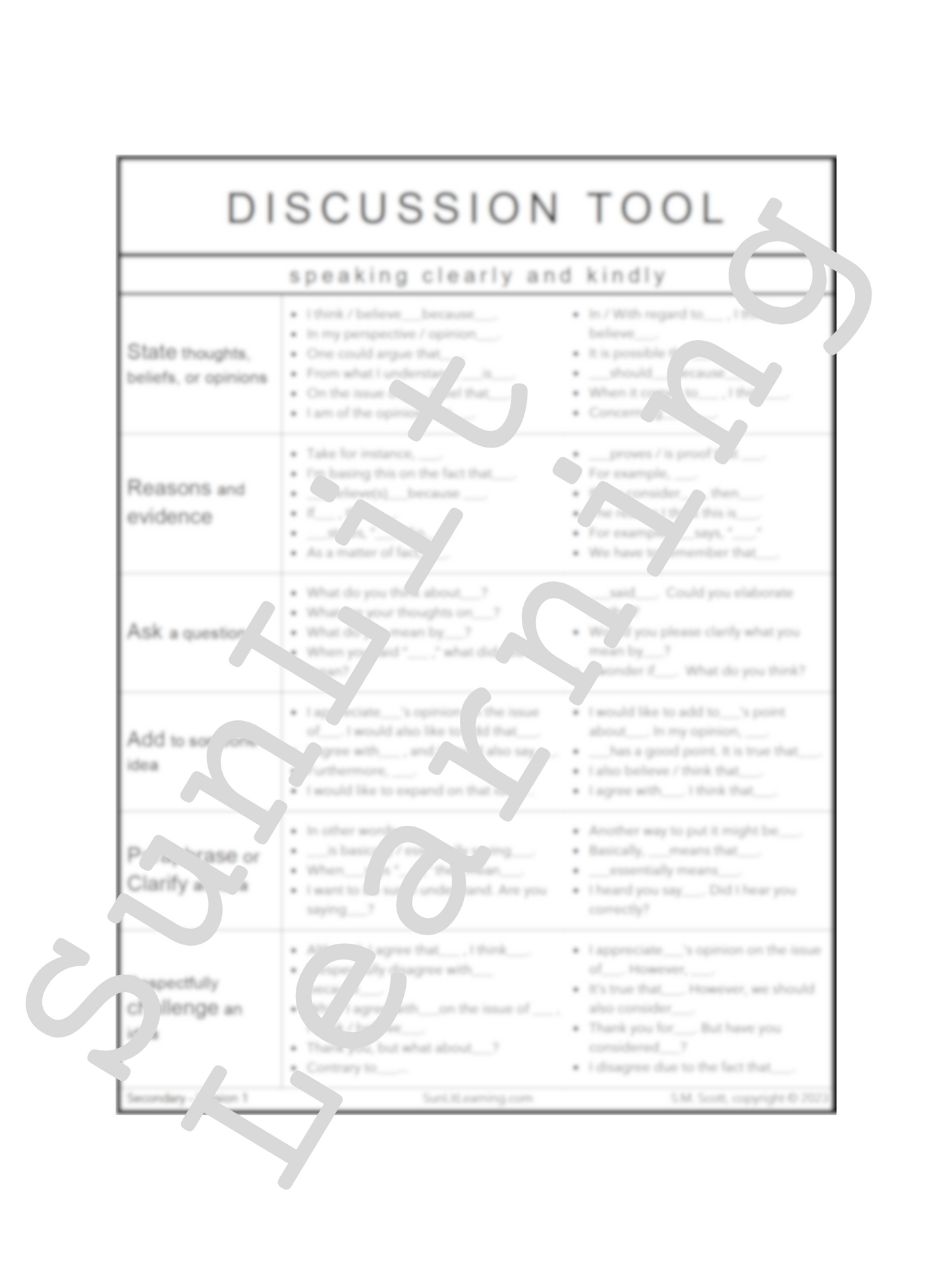SunLit Learning
Discussion Tool
Discussion Tool
Couldn't load pickup availability
Product
Reference tool for use during academic discussions! Ideal for Socratic seminars, debates, and more.
Type: Reference
Level: Secondary (grades 6 and above)
Version: 1
Discussion and Academic Language
Using academic language during discussions is important for several reasons:
-
Clarity and precision: Academic language is characterized by its precision and clarity. It provides a specific and well-defined vocabulary that allows for clear and unambiguous communication. By using academic language, participants in discussions can convey their ideas and arguments with greater precision, minimizing misunderstandings and ensuring that their points are effectively communicated.
-
Common understanding: Academic language serves as a shared code of communication within academic and scholarly communities. By using academic language during discussions, participants establish a common understanding of terms, concepts, and methodologies. This shared language facilitates effective communication and promotes meaningful dialogue among individuals with diverse backgrounds and expertise.
-
Conveying expertise and credibility: Using academic language demonstrates a level of expertise and credibility in a particular field of study. It shows that participants are knowledgeable about the subject matter and are able to engage in sophisticated discussions. Academic language carries authority and signifies a depth of understanding, enhancing the persuasiveness and impact of participants' arguments.
-
Engaging with scholarly discourse: Academic language enables participants to engage with scholarly discourse and contribute to intellectual discussions. It allows individuals to access and engage with academic literature, research papers, and other scholarly resources. By using academic language, participants can effectively participate in academic and intellectual communities, making meaningful contributions to the ongoing discourse.
-
Promoting critical thinking and analysis: Academic language encourages participants to engage in critical thinking and analysis. It provides a framework for discussing complex ideas, theories, and research findings. By using academic language, participants are prompted to critically evaluate evidence, consider alternative viewpoints, and construct well-reasoned arguments. It fosters deeper levels of analysis and promotes intellectual rigor.
-
Developing academic and professional skills: The use of academic language during discussions helps individuals develop academic and professional skills that are valued in various domains. It enhances participants' abilities to write, speak, and analyze information effectively. Engaging in discussions with academic language cultivates skills such as critical thinking, research, analysis, and persuasive communication.
-
Preparation for academic and professional contexts: Using academic language in discussions prepares individuals for academic and professional contexts where such language is the norm. It familiarizes participants with the expectations and communication styles prevalent in these settings. Developing proficiency in academic language during discussions equips individuals with the skills necessary for academic presentations, professional conferences, research papers, and other scholarly activities.
Thus, using academic language during discussions promotes clarity, common understanding, expertise, credibility, engagement with scholarly discourse, critical thinking, and the development of academic and professional skills. It enables participants to effectively communicate their ideas, engage with complex concepts, and contribute meaningfully to intellectual conversations.

Introduce your content
Answer your customers' common questions
List a frequently asked question
Then provide an answer that will help your customer make an informed purchase.

